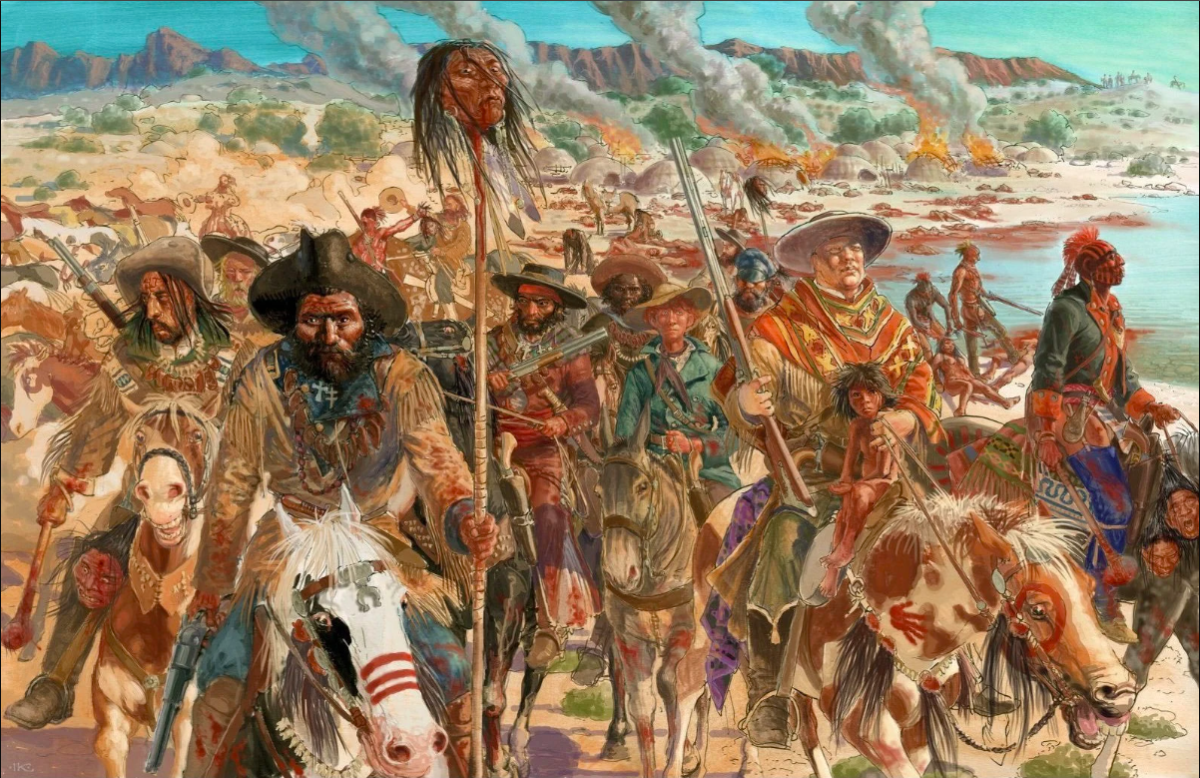Cormac McCarthy’s novel Blood Meridian is considered to be one of the most notorious works of historical fiction in the American western genera, having intense descriptions of violence and mature themes, as well as biblical references, even taking inspiration from Dante’s Inferno and other classical works. The story of the book is largely based on the writings (potentially glorified accounts) of Samuel Chamberlain, a member of the historic Glanton Gang who wrote about their travels and crimes (including a member being the inspiration for Judge Holden) in his autobiography called My Confession: The Recollections of a Rogue. The novel Blood Meridian takes place in the late 1840s and early 1850s. The story follows a teenager known only as “the kid” (for most of the novel) who follows a destructive path, trying to find purpose in the American Wild West. He travels south getting into rough times and petty crime, until he is picked up and recruited by a US military regiment fighting in the Mexican-American war. he is captured, escapes, and joins a gang of outlaws, known as the Glanton Gang, a key member in the gang being Judge Holden. This gang partakes in scalp hunting, where they take contracts from nearby Mexican settlements to go out and kill/take the scalps of nearby Native American tribes to reach the quota of these contracts. The Glanton Gang would go on a long campaign of raids and debauchery, rampaging through the American south/southwest, destroying Native American settlements to trade scalps for money. They would later begin killing anybody (the Mexican people) for the collection of scalps, as they believed no one would know if they were native scalps or not. Eventually, the gang would spiral out of control, being hunted by Mexican authorities, having a last stand that would break apart the Glanton Gang. Years later “the kid” will become “the man” as he grows older and hardened by the American outlaw life. Ultimately, “the man” will meet his end by the hand of the Judge.
The Blood Meridian
Type: Gallery Image | Not Vetted


